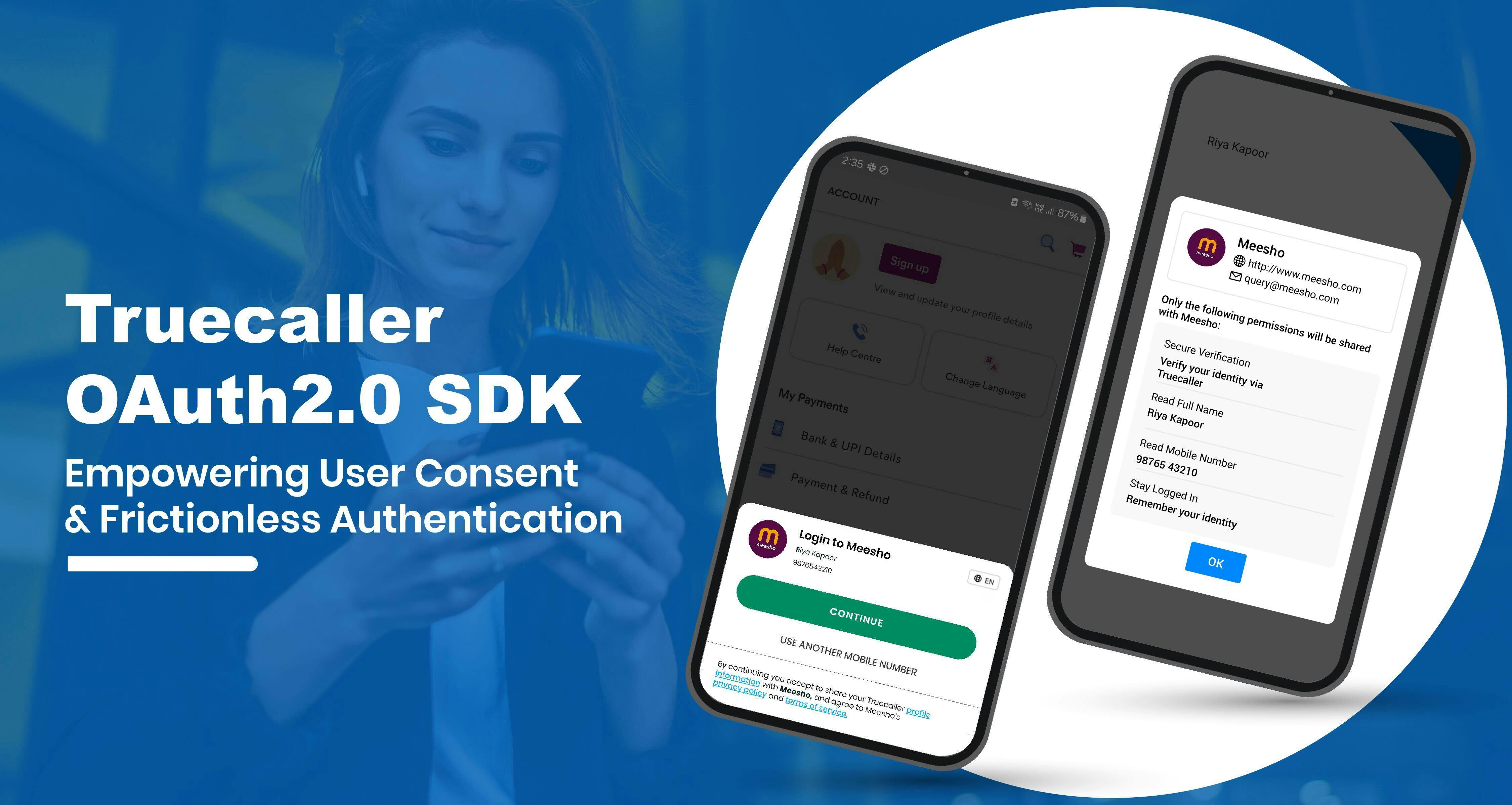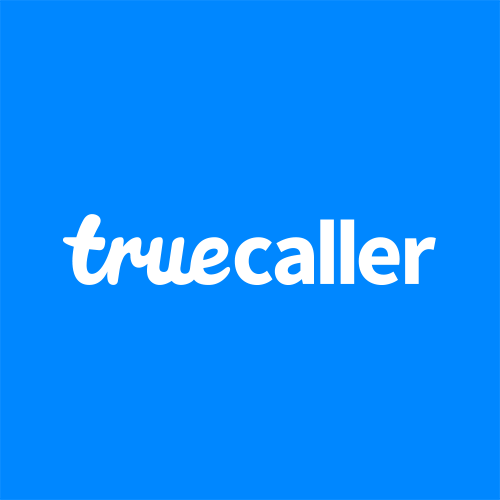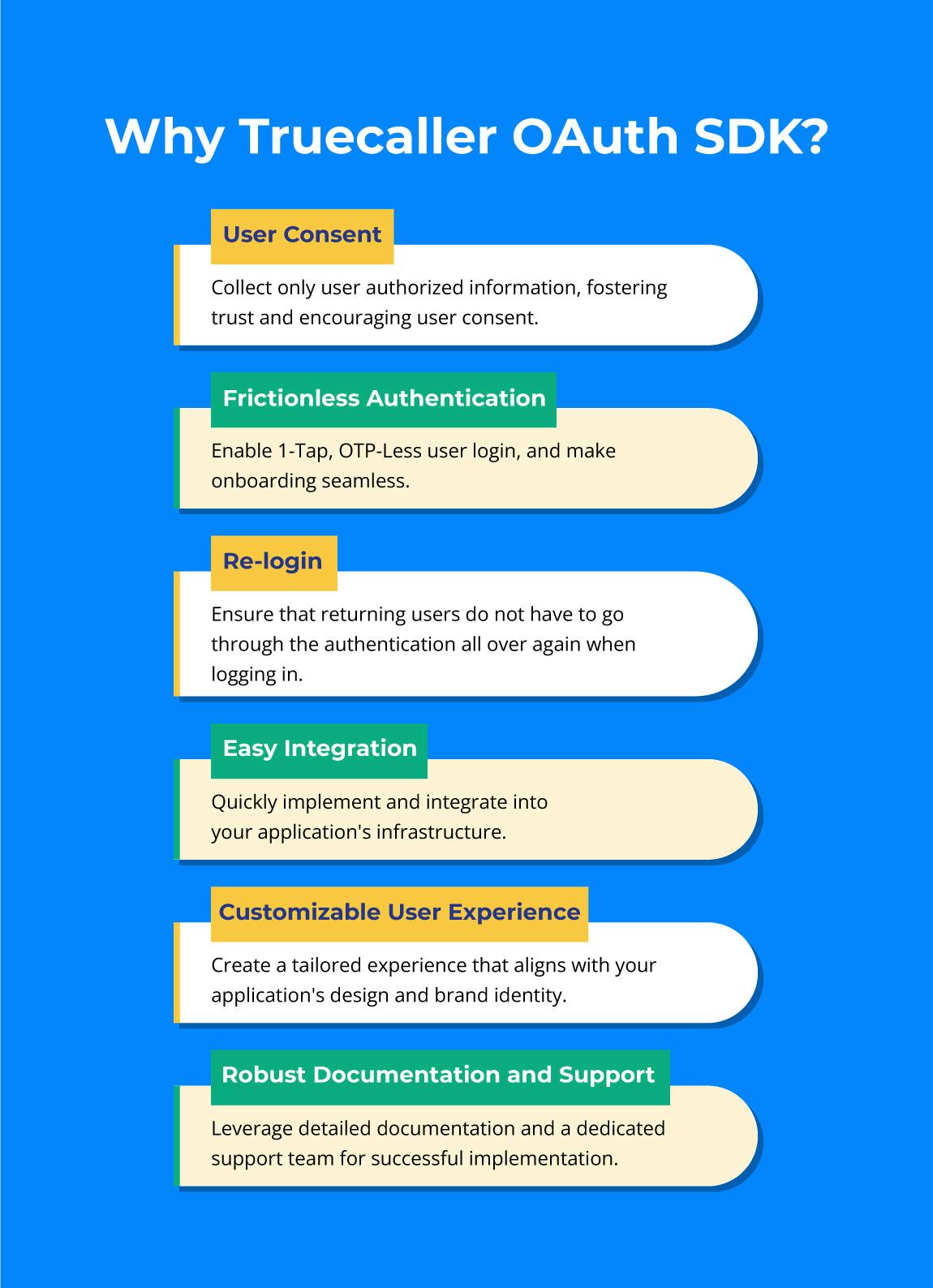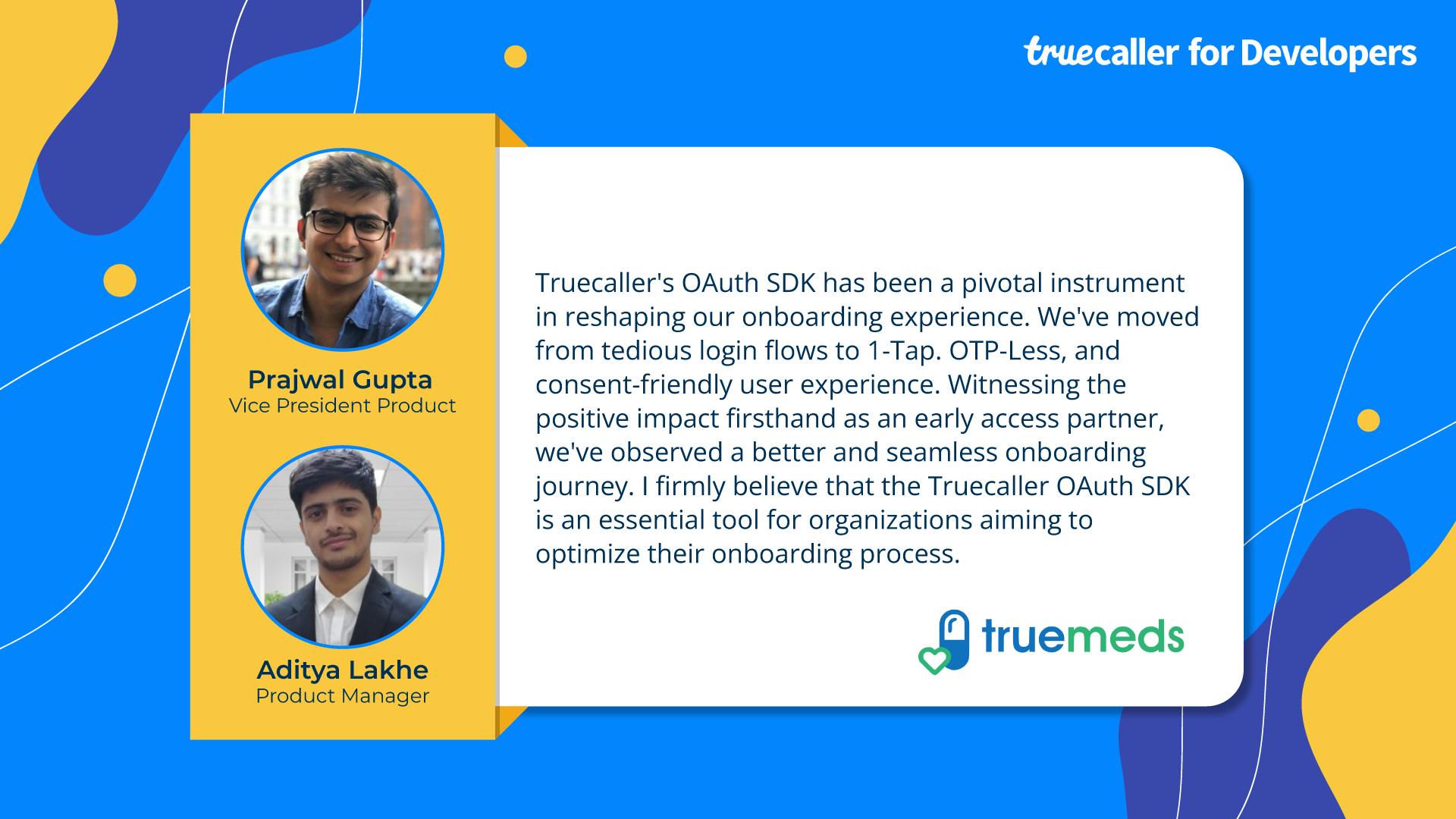
Truecaller OAuth SDK: Empowering User Consent And Frictionless Authentication

Truecaller
Apr 10th, 20234 min readEdited on Jun 5th, 2024
User authentication has become critical to online security in an era of ever-increasing digital threats. However, conventional authentication methods have proven risky and cumbersome, leading to user drop-offs and potential data breaches.
Enters Truecaller OAuth SDK, which harnesses the power of phone number-based user verification and offers a secure, simplified, and privacy-conscious approach to user onboarding.
Discover how your application can benefit from Truecaller OAuth SDK's easy integration, customizable user experience, and robust support, ensuring users enjoy a seamless, frictionless, and secure authentication process.
What is OAuth 2.0?
OAuth (Open Authorization) is an open standard for token-based authentication and authorization that allows third-party applications to access user information and resources from a service provider without sharing the user's credentials (like username and password). Instead, OAuth uses access tokens to grant limited permissions to third-party applications, enabling users to control the scope and duration of access.
The OAuth framework consists of several versions, with OAuth 2.0 being the most widely adopted. OAuth 2.0 provides a more simplified and secure process for developers to implement and for users to grant permissions. It is commonly used by many popular platforms and services, such as Google, Facebook, and Twitter, to securely allow users to log in and share information with other apps and websites.
For example, users want to use a third-party app to manage their social media accounts. With OAuth, they can grant them selective access to profile resources instead of providing their login credentials (username, password, or phone number).
OAuth: Not Just for Third-Party Apps
While OAuth was initially created to protect users from third-party applications, it has proven helpful in many other scenarios. For instance, organizations that build apps on their APIs can benefit from OAuth by centralizing user authentication. Users only have to enter their login credentials (username, password, phone number, etc), even if they switch between different applications.
Centralized authentication also makes it easier to implement security features like multi-factor authentication. Since users only log in through the OAuth server, adding multi-factor authentication only requires changes to the authentication server, not individual applications.
The Problem OAuth can solve - Risky and tedious user login
Before OAuth, it was common for web applications to ask users for their login credentials. For instance, whenever a user logged into an app, they would enter their password, and the app would take that information to log in on the user’s behalf. This practice posed significant security risks since users had to trust the application not to misuse their login credentials. Moreover, users had to enter multiple credentials using the app, leading to drop-offs and cart abandonments.

The Solution: OAuth-based 1-Tap, OTP-Less login
It can solve the security challenge, make user onboarding instant and OTP-independent, and significantly cut down user drop-offs. Moreover, it can allow users to grant or revoke application permissions without sharing their login credentials, giving them more control.
Introducing Truecaller OAuth SDK: Harness the power of OAuth-based seamless user login
Truecaller OAuth SDK brings the proven security and simplicity of OAuth2.0 to 1-Tap, OTP-Less user onboarding. The SDK adheres to widely accepted security and authentication practices, making it an industry-standard offering.
- Simplified Onboarding: By allowing users to log in with their phone numbers, Truecaller OAuth SDK eliminates the need for multiple credentials and streamlines the onboarding process, resulting in a frictionless user experience.
- User Consent: The solution ensures that you collect only the user-authorized information, encouraging consent and fostering trust among your users.
- Easy Integration: Our OAuth SDK is designed to be easily integrated into your application's existing infrastructure, allowing you to quickly enable 1-Tap, OTP-Less user login.
- Customizable User Experience: It offers a flexible and customizable user interface, enabling you to create a tailored user experience that aligns with your application's design and brand identity.
- Robust Documentation and Support: Our comprehensive documentation and dedicated support team ensure you have all the information and assistance you need to implement the SDK successfully.
The nitty-gritty
- Truecaller OAuth SDK ensures a secure and consented way to authenticate users with phone number-based identity. This allows developers to build applications that securely interact with Truecaller's APIs while providing a seamless user experience.
- The re-login feature in the Truecaller OAuth SDK ensures that users do not have to go through the authentication process all over again whenever they log into an app. Once the user consents, the app can access a long-lived token, enabling a smooth and frictionless experience for repeat users.
- Truecaller OAuth SDK enables end-users to give consented access to sensitive information. During the authentication process, users will be prompted (through a consent screen) to grant permissions to the application requesting access to specific resources. Users can review the requested permissions and decide whether to allow or deny access, ensuring their data remains secure and controlled.
Furthermore, the updated consent screen displays the developer or app information, giving users confidence that they are sharing information with a legitimate and trustworthy party. All partners undergo a thorough review process before using our OAuth flow, preventing users from identity thefts and other malicious entities.
- When integrating Truecaller OAuth SDK, developers can configure the necessary access levels for different Truecaller resources by specifying requisite scopes (permissions) via the developer portal. These permissions grant the application access to specific user information or services from Truecaller.
- Application developers must first register with the Truecaller Developer Portal (https://developer.truecaller.com/). This portal is the central platform for configuring OAuth scopes. They can define the required permissions for their applications by specifying OAuth scopes during the registration process. Scopes determine the level of access to Truecaller resources, such as the user's profile information, phone number, or email address.

Conclusion
OAuth is a critical protocol that enables secure and convenient user authentication in web applications. By centralizing user authentication, OAuth reduces the risk of password breaches and simplifies implementing security features like multi-factor authentication. Organizations that use OAuth across all their applications can enjoy many security benefits and avoid relying on passwords everywhere.